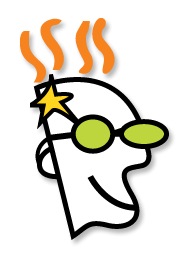Apr 04 2016
whatIlearnt.today – A toast to Wilt’s new domain Whoo hoo. WILT has a new home.
Whoo hoo. WILT has a new home.
Way back in the beginning of Internet time, each computer was identified by a number (an IP number, in fact, like 216.55.97.107).
As more and more computers joined the network, people had trouble remembering these numbers. In 1983, a human friendly ‘phonebook’ system was proposed and developed. This ‘Domain Name System’ is still used today. In 1985 there were a total of 6 domain names. Now there are about 300 million.
Initial there were sever ‘top level domains’ , .com, .edu, .gov, .int, .mil, .net, and .org.
If you could demonstrate that a particular domain name was appropriate to your company or organisation, it was assigned to you by a committee of the National Science Association – free of charge. Alas, the process was commercialised in 1995.
There are another 250 two letter top level domain (tld) names assigned to individual countries and territories. The pacific island nation Tuvalu was in luck – in 1999 they signed a 12 year deal for $50 million for the rights to resell their assigned tld .tv . After their first $1 million royalty payment, they could finally afford the $100,000 it cost to join the United Nations.
Australia’s .au tld was introduced in 1986. Kevin ‘Robert’ Elz from Melbourne Uni was personally responsible for assigning all .au names until the late 1990s. I first contacted him in the early 1990s. He maintained a policy in which there had to be a direct connection between a company’s official name and its domain name. In contrast, the world of .com is a first come first served free for all. Elz personally checked every application. He also is said to have introduced online text commentary for cricket matches. What a legend.
Since 1998, the Internet Corporation for Assigned Names and Numbers (ICANN) controls the domain name system. We have run out of all three letter and four letter .com names – everything from aaaa.com to zzzz.com is gone! (all the three letter combinations ran out in 1997!)
New domain names are cheap. A .com name can cost less than $10 a year, depending on which domain name provider you buy it from. (I use Go Daddy for international names and Cheap Domains for .au). But there is a thriving market in re-selling ‘desirable’ names. The record sale of vacationrentals.com was $35 million, in 2007. Some people ‘harvest’ thousand of potential names in case they become valuable. In 2012, one man registered 14,962 domain names in 24 hours. http://whatIlearnttoday.com has been registered but never used. It is available for sale for $3296
Since 2001, as .com names get used up, ICANN has incrementally introduced new top level domains. You may have seen .info, .biz, .name or .me (as in http://wilt.me and http://lembke.me)
In 2013 the domain name world was further opened up as ICANN begun to auction off the rights to names such as .travel, .club, .xxx, .bike, .clothing, .guru, .holdings, .plumbing, .singles, and .ventures. As in http://halfdiet.club. And you can even register .sucks.
The tld .today was introduced in late 2013. Soon after http://whatIlearnt.today was purchased by someone in the UK but never used. You can (quite legally and ethically) check who owns a particular name using a ‘whois’ server. I have been keeping an eye on whatIlearnt.today – it expired in January 2016. There is a period of grace between expiration and the domain name becoming available – and sometime this afternoon it was released for sale.
![]() So if you look up ‘whatilearnt.today’ on the ICANN whois server you can check out who bought it!
So if you look up ‘whatilearnt.today’ on the ICANN whois server you can check out who bought it!
So – celebrations for WILT’s new home at http://whatIlearnt.today




 RSS - Posts
RSS - Posts


Nice job Greek geek